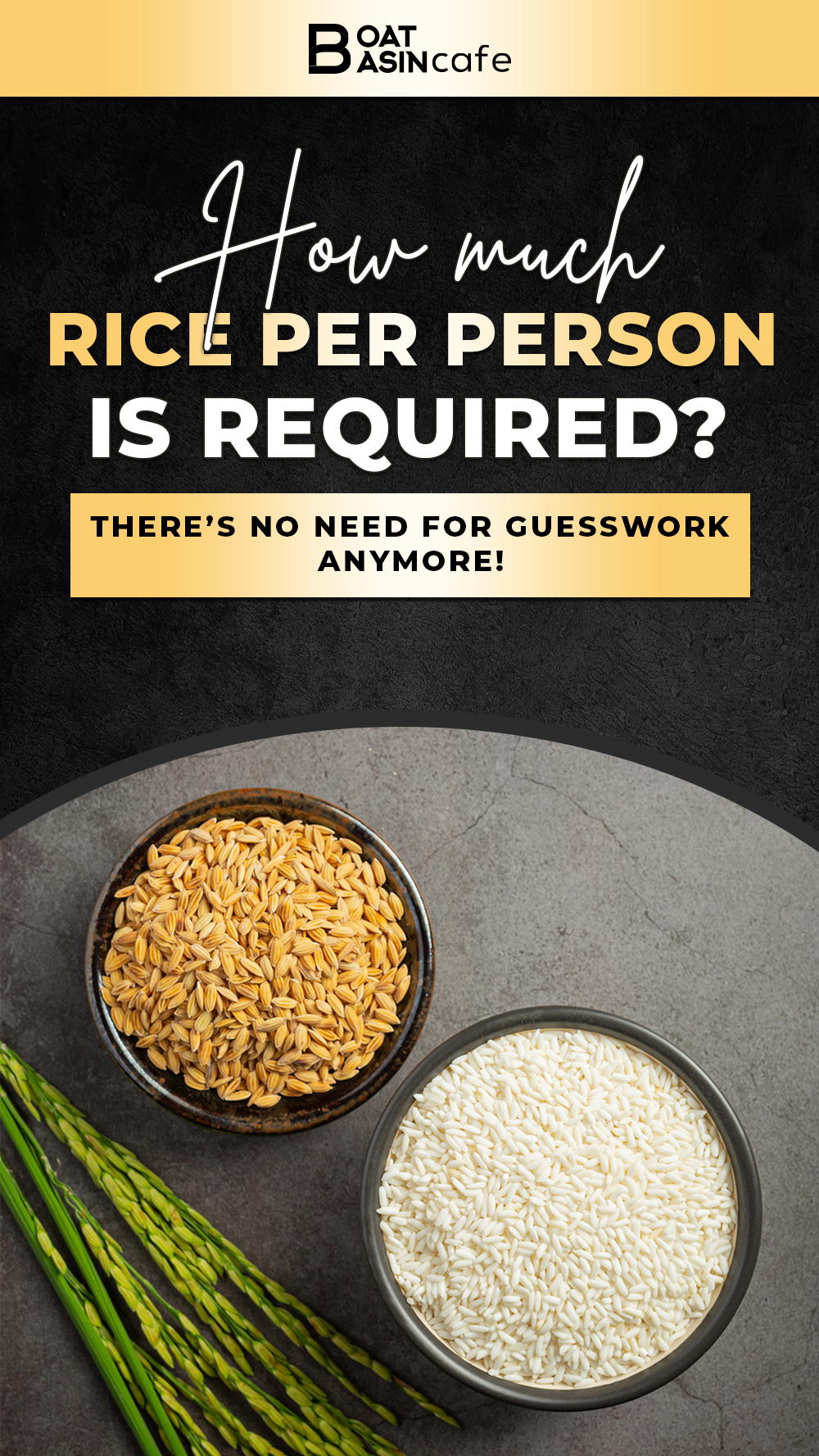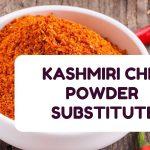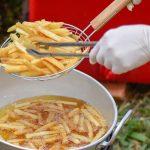Ever wonder: How much rice per person is just right? Cooking the right amount of rice for different dishes can be confusing.
But fear not! As a chef with decades of experience cooking rice in small cafes and Chinatown kitchens, I’ve navigated my share of grainy goodness.
Through trial and error (and pounds of undercooked and mushy rice!), I’ve unlocked the secrets to getting rice right each time.
[su_note note_color=”#22CCCE” text_color=”#FFFFFF”]Key Takeaway:
One cup of uncooked rice makes two cups of cooked rice. For a main dish, serve one cup of cooked rice per person. For a side dish, serve half a cup of cooked rice per person.[/su_note]
How Much Rice Per Person?(with Chart)
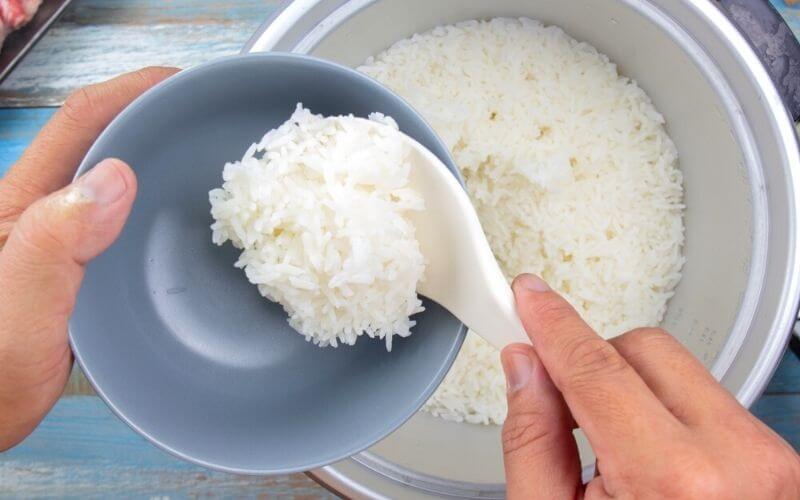
When cooking rice, getting the right portion size for your needs is key. Undercook and you leave guests hungry. Overcook and you end up with wasted food and money.
Use the portions guide below to take the guesswork out of how much rice per person.
💁🏻♂️Recommended Rice Portion Sizes
| Role | Long-Grain White Rice | Short-Grain Rice |
| Side Dish | 1/2 cup uncooked1 cup cooked | 1/3 cup uncooked2/3 cup cooked |
| Main Course | 1 cup uncooked2 cups cooked | 2/3 cup uncooked1 1/3 cups cooked |
| Hearty Appetite Main Course | 1 1/2 cups uncooked3 cups cooked | 1 cup uncooked 2 cups cooked |
Portion sizes can vary based on appetite, age, rice type, and health goals. For example, opt for smaller portions if limiting calories. Stick with the higher end for teenage appetites!
When in doubt, err on the lower end. You can always cook more, but it’s tougher to reduce portions once rice is made!
“Perfectly portioned rice makes for happy diners. Keep portions reasonable, cook mindfully, and reduce waste.”
🍚How Much Cooked Rice Can I Get from Different Kinds of Rice Grains?
This table will show you the different yields for white, brown, and other kinds of rice.
| Type Of Rice | Cooked Rice Yield/Cup | Amount Of Cooking Liquid | Cook Time |
|---|---|---|---|
| Regular White | 2 cups | 2 cups | 16-18 minutes |
| Regular Brown | 3 cups | 2.5 cups | 40-50 minutes |
| Jasmine/Basmati | Varies | 1.5 cups | ~25 minutes |
| Arborio | Varies | 2 cups | ~20 minutes |
| Wild | Varies | 4 cups | 45-55 minutes |
| Sticky Rice | Varies | 1.5 cups | ~45 minutes |
👩🍳Quick Conversion Tips:
- One cup of uncooked white rice yields 2 cups of cooked rice.
- One cup of uncooked brown rice yields 3 cups of cooked rice.
- Half a cup of uncooked rice is generally sufficient when serving rice as a side dish.
Our recommended recipes, carefully designed by expert chefs, often call for specific rice types, ensuring your dish is nothing less than perfect. When preparing Jasmine/Basmati, an individual might take 3 cups of rice to 1.5 cups of water and allow it to cook for ~25 minutes. The exact timing may vary based on the specific experience and preference of the cook.
Arborio rice, another ingredient in many culinary creations, requires 2 cups of rice to 2 cups of water and should be cooked for approximately 20 minutes.
👩🍳Serving Suggestions:
- For a meal with rice as the main dish: 1 cup of cooked rice per person.
- For a meal with rice as a side dish: Half a cup of cooked rice per person.
The experience of cooking wild rice significantly differs, providing an exciting alternative. For this, you’ll need 4 cups of rice to 4 cups of water and it takes anywhere between 45-55 minutes to cook.
Sticky Rice is yet another key ingredient in myriad dishes. To prepare it, use 2 cups of rice to 1.5 cups of water, cooking for approximately 45 minutes.
🎉 Pro Tip: Cultural Portion Differences
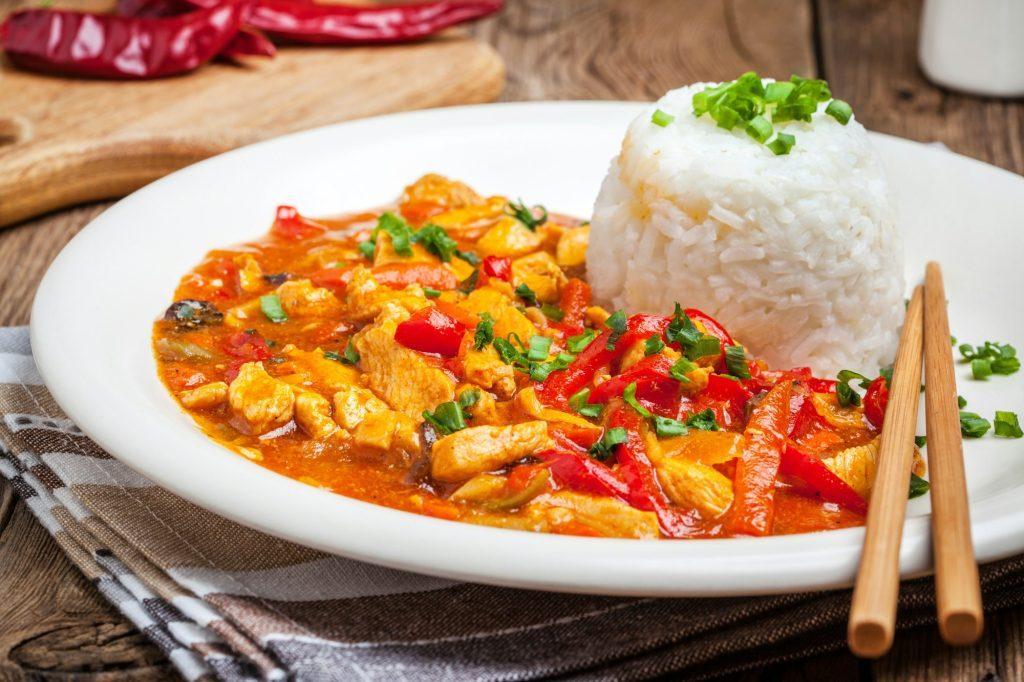
Rice portion expectations can vary across cultures. From my years cooking in Chinatown restaurants, I learned that Asian cuisine often features rice as the main carbohydrate.
So 3 cups of rice per person for a main dish would not be unusual.
Catering to diners’ cultural taste buds and expectations leads to delicious meals all can enjoy.
✨Fun Fact: Rice Consumption & Reducing Waste
With over half the world eating rice daily, getting rice portions right has a huge impact! 500 million tons of rice are produced globally per year.
By mastering proper rice portions, we can make a dent in the 1.3 billion tons of food wasted annually worldwide.
Cook Perfect Rice Every Time
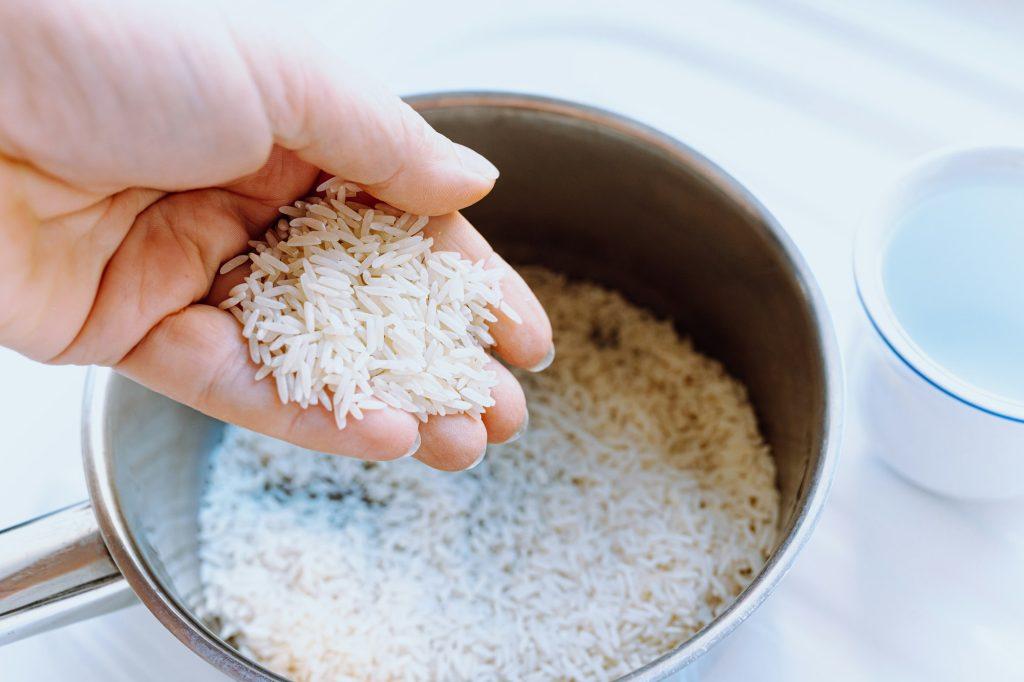
Cooking fluffy, tender rice starts with good technique. Follow these expert pointers for rice perfection every time.
Unlock Fluffy Perfection: Why Rinsing Rice is Key
Rinsing rice before cooking is a must! Give rice a good stir, then drain away excess starch.
This helps prevent gummy rice texture. Rinsing makes a huge difference for achieving light, fluffy Basmati rice.
“Rinsing rice leads to fluffier grains by removing surface starch.”
Chef Gabriella, Rice Expert
Water Wisdom
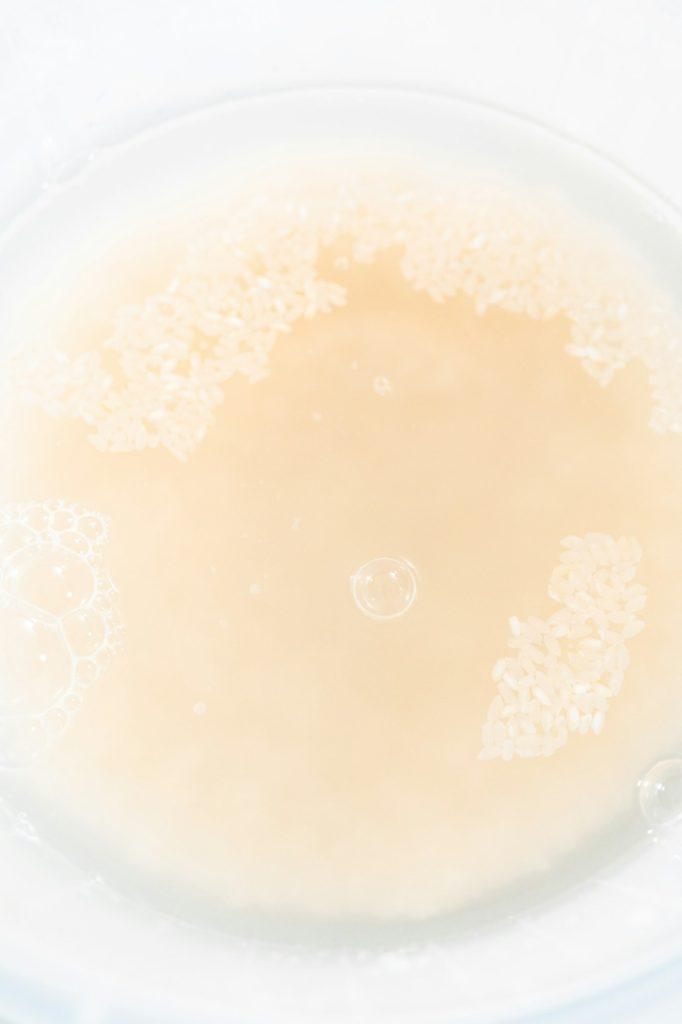
Using the right amount of water ensures the rice doesn’t get mushy. Good absorption equals optimized texture.
Use these ratios:
- Long grain white rice: 1 cup uncooked rice to 1.5 cups water
- Short grain rice or sushi rice: 1 cup uncooked rice to 1 cup water
- Brown rice: 1 cup uncooked rice to 2 cups water
For foolproof portions, use a measuring cup for both rice and water. No more mushy rice or burned pans!
Fluff It Up!
Once cooked, give rice a stir with a fork to fluff and separate grains. This allows excess moisture to evaporate for the perfect tender, fluffy texture.
Black Rice – A Nutty, Colorful Option
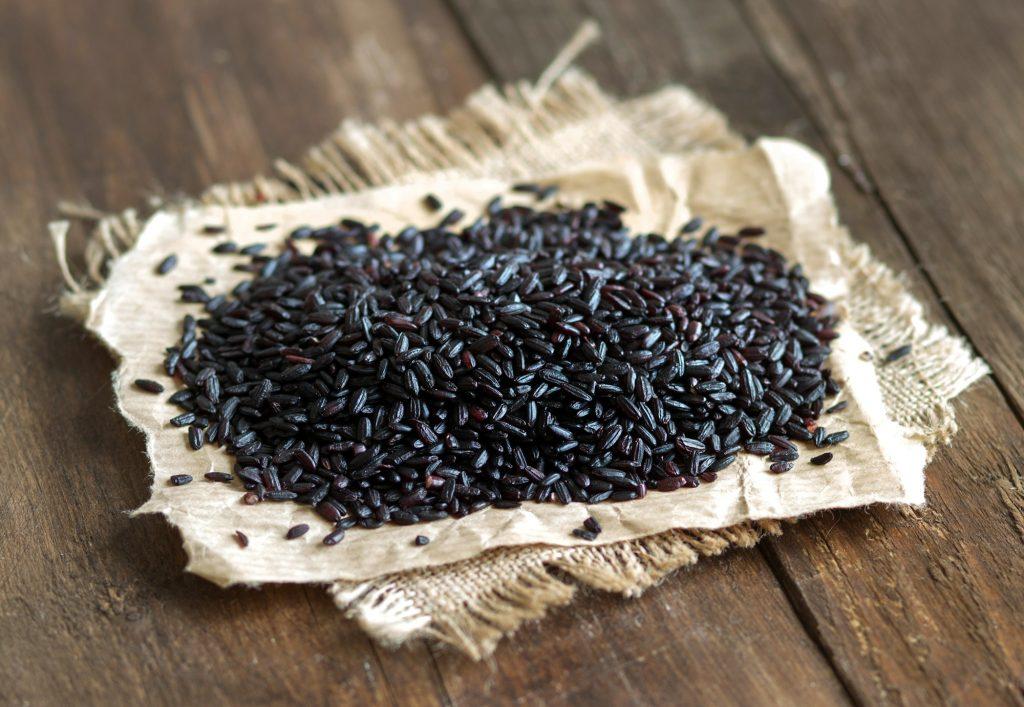
Beyond white and brown rice varieties, give nutritious black rice a try!
This unpolished rice boasts more antioxidants than blueberries. Its deep purple hue also makes a stunning statement in fried rice or salads!
For 1 cup uncooked black rice, use 2 cups water and cook for 30-40 minutes until tender. Enjoy its sweet, nutty flavor and food coloring powers!
Creative Rice Hacks for Leftovers & Sustainability
Leftover rice provides ample opportunities for delicious and sustainable cooking. Follow these tips for creative ways to use extra rice and reduce waste.
Leftover Love
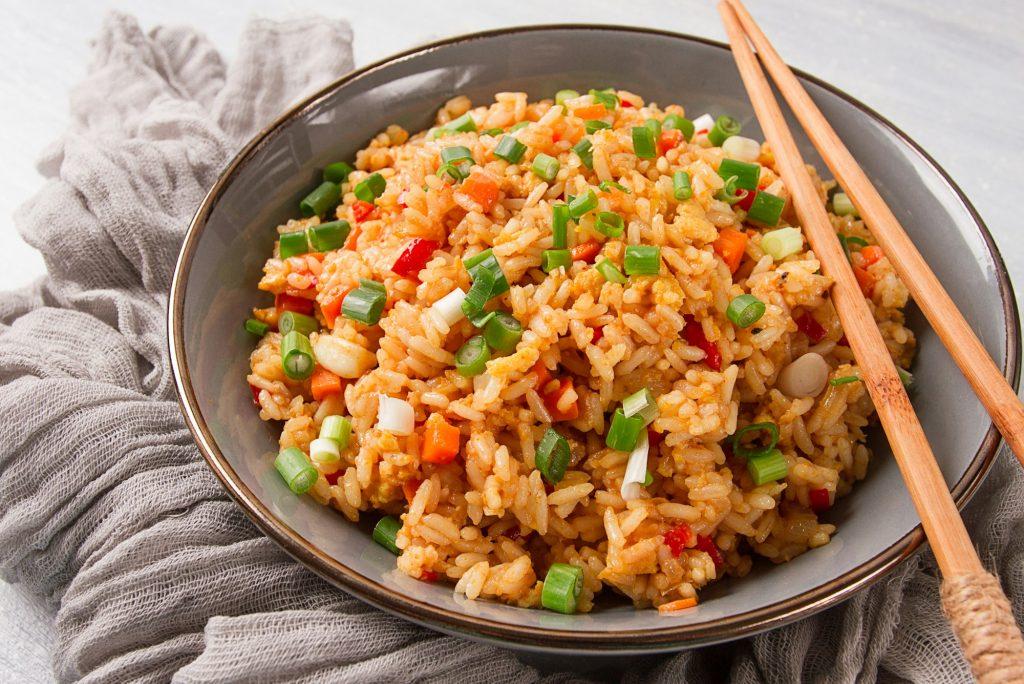
Breathing new life into leftovers makes good use of ingredients already on hand. Get creative with rice!
- Fried rice – Toss cold rice with egg, veggies and soy sauce for a quick stir-fry.
- Rice pudding – Simmer 1 cup cooked rice with milk, raisins, cinnamon and sugar for a creamy dessert.
- Rice cakes – Mash rice with milk and fry for crisp snacks or breakfast sides.
“Transforming leftovers takes creativity, but the payoff is delicious.” – Chef Akira, Leftover Innovator
Portion Control Pro
Planning proper portion sizes for your meal and knowing how many people you are serving allows you to cook the precise amount of rice needed.
No more cooking extra rice only to toss excess. This saves money and reduces food waste. Follow the precise portioning tips from Part 1 for success!
Eco-Conscious Tip
Cooking rice efficiently conserves resources for our planet. Using the right rice-to-water ratios means you use only the water needed, saving energy and water.
And when you nail portion sizes as recommended, you cook only what is required. Less surplus rice means less food waste and money in the garbage.
Health Implications of Rice Portions
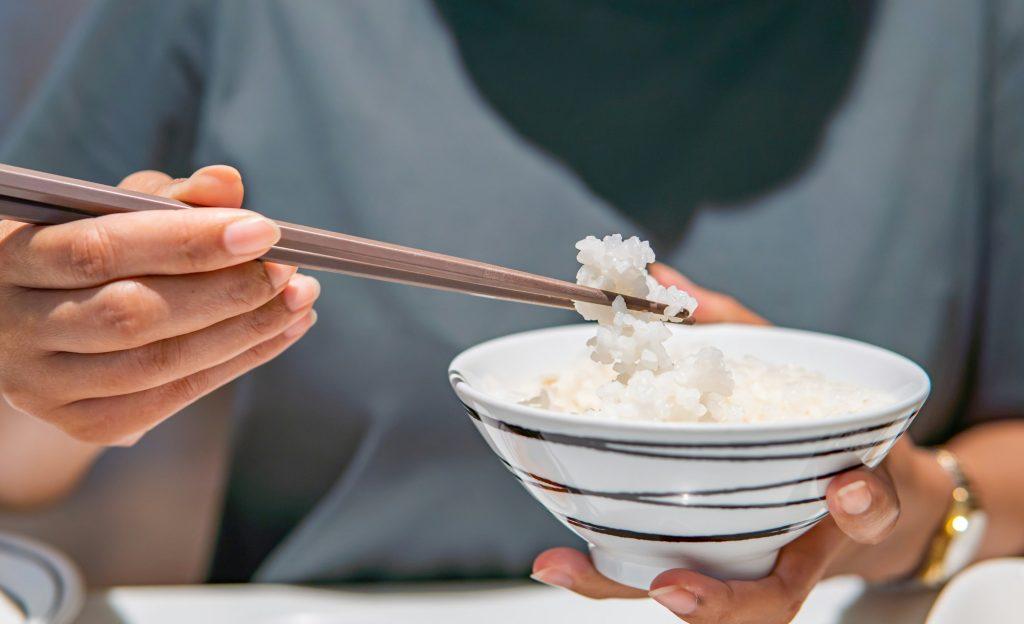
Understanding the correct serving size of rice can help you maintain a balanced diet. While rice is a good energy source, overconsumption can lead to weight gain and high blood sugar.
According WebMD, eating enough rice can leave you feeling satisfied and could result in nutrient deficiencies if it’s a major source of essential nutrients in your diet.
The Caloric Count
One cup of cooked white rice contains approximately 200-240 calories. If rice is your main source of carbohydrates, then a cup should suffice. But remember, other elements like protein and vegetables also add to your meal’s total caloric content.
Nutritional Value
Rice gives you carbohydrates. It also offers a bit of protein and fiber. Brown rice has more fiber than white rice. Wild rice also has more fiber than white rice. A cup of rice in your meal helps with daily nutrition. This is truer if you also eat vegetables and protein.
Dietary Restrictions
People with dietary restrictions, like diabetes, need to be cautious about rice portions. Overeating rice can cause spikes in blood sugar levels. In such cases, you may need to stick to half a cup or a third cup of cooked rice.
Overeating and Weight Gain
Consuming too much rice can lead to excessive calorie intake. This could contribute to weight gain over time. If you are on a weight-loss journey, consider reducing the portion size to half a cup of cooked rice or opt for low-calorie grains like quinoa.
Portion Control for Children
Children also require a different serving size. Generally, children need less than a cup of rice. A half-cup to three-quarters of a cup should be sufficient depending on their age, activity level, and overall diet.
By understanding the health implications of rice portions, you can make better dietary choices that suit your needs and lifestyle. Whether feeding yourself, your family, adults, or a large group, getting the rice portion right is crucial for a balanced and fulfilling meal.
Conclusion
Whether rice plays a starring role in your dishes or makes cameos as a sidekick, getting rice right is key.
By ditching the guesswork and following the tips in this guide for portion sizes, cook times, rice-to-water ratios and more, you can eliminate waste and unlock delicious, fluffy rice results.
Remember, a few simple practices go a long way:
- Rinse rice before cooking
- Use exact rice-to-water measurements
- Cook rice with smaller portions in mind
- Fluff rice after cooking for best texture
- Get creative with leftovers to cut waste!
Rice features in cuisines across the globe. Master these tricks for enjoying this versatile grain at its very best.
FAQs
How much rice is needed per person?
The amount of uncooked rice needed per person depends on whether it is served as a side dish or a main dish. For a side dish, plan on 1/2 cup uncooked rice per person. For a main course, plan on 1 cup uncooked rice per person. Adjust amounts based on appetites and rice variety.
What is the portion size for dried rice?
A standard portion size for dried, uncooked rice is 1⁄2 cup. This yields about 1 cup cooked rice total, which is suitable for a side dish serving. For main dishes, a standard portion size for dried rice is 1 cup uncooked, which makes about 2 cups cooked.
How many cups of rice should I cook for 2 people?
If serving rice as a side dish for 2 people, cook 1 cup of uncooked rice total. This will yield about 2 cups total cooked, or 1 cup per person. For a main course for 2, cook 2 cups uncooked rice to yield about 4 cups cooked total, or 2 cups each.
What is the best rice for weight loss?
For weight loss diets, it’s best to watch portion sizes of all grains and starches, including rice. To reduce calories, fill most of your plate with non-starchy vegetables and lean protein. When you do eat rice, stick with 1/2 to 3/4 cup cooked maximum per meal. Choose brown rice or black rice over white rice for more fiber and nutrients.
Pin Later
